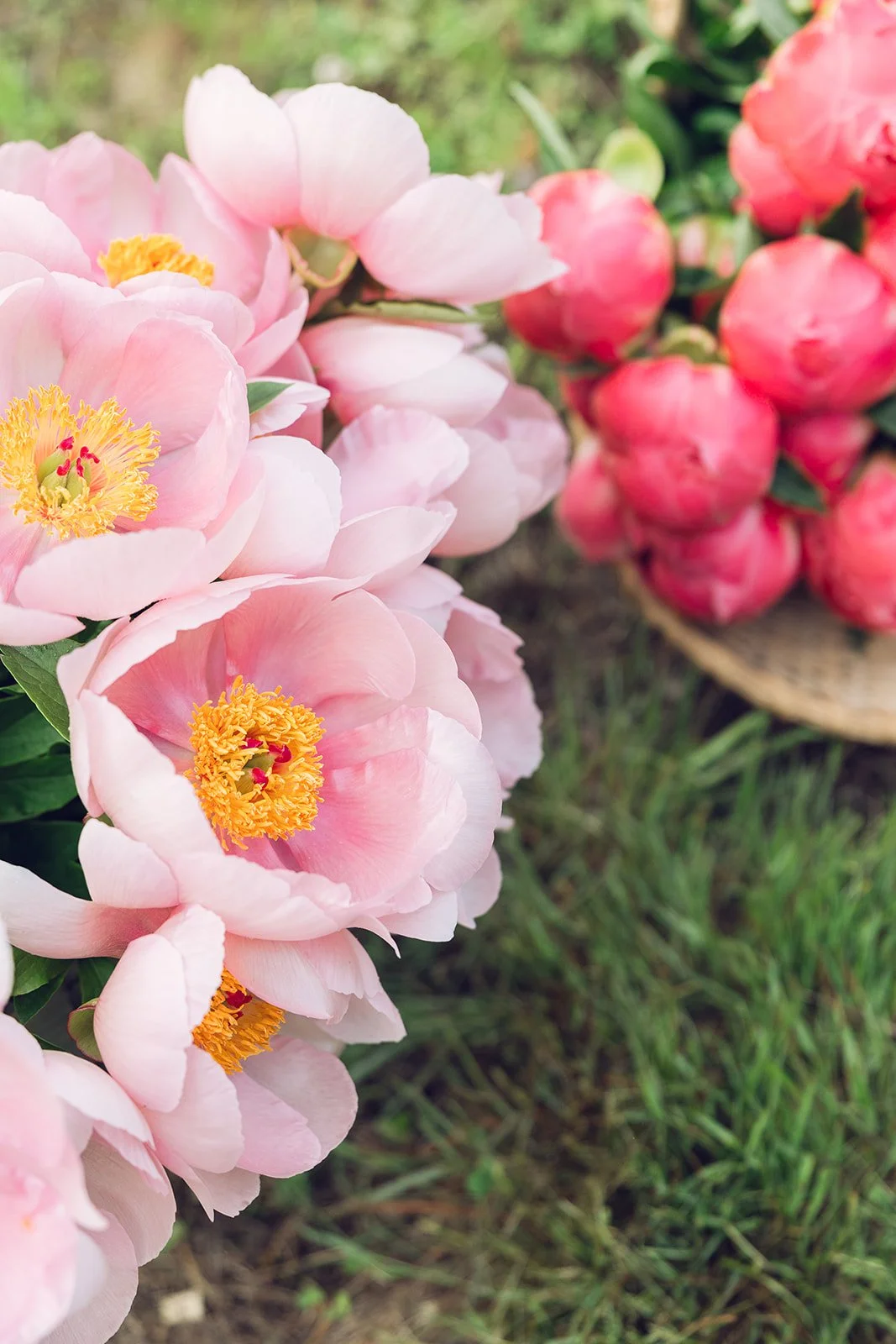So, you’re curious about peony farming—and wondering if it’s right for you. Whether you’re a new flower farmer, a homesteader, or a florist dreaming of your own patch of blooms, peonies can be a rewarding (and profitable!) crop.
In this beginner-friendly guide, I’ll walk you through the basics of starting a peony farm—and how to do it in a way that sets you up for profit.
Why Peonies Are a Smart Choice for Farmers
Longevity: Once established, plants produce for 50+ years
Low maintenance: Minimal fertilization, no dividing required
High demand: Loved by florists, event designers, and direct-to-consumer retail markets
Sales flexibility: Sell wholesale, at farmers markets, in subscriptions, or for weddings. Plus, you can dry store stems to extend your sales window.
Step 1: Planning & Site Selection
Peonies thrive in USDA Zones 3–7 (sometimes 8/9 with special care). Choose:
Full sun: 6–8+ hours/day
Well-drained soil: peonies hate “wet feet”
Space: 3’ between plants (ignore traditional advice of 2’, it’s not enough)
Step 2: Planting Basics
Planting depth: 1–2” below soil (depending on zone); too deep = no blooms
Fall planting: Best time to establish strong roots
Spacing: Rows 4’ apart for airflow and ease of harvest
Step 3: Care & Maintenance
Fertilize every few years (not annually)
Water during establishment (some climates don’t need irrigation after)
Cut foliage back after frost and dispose of it to prevent disease
Step 4: Harvesting & Storage
Harvest at the marshmallow stage (bud slightly soft when gently squeezed)
Use dry storage (wrap stems in kraft paper, refrigerate) to extend your sales window
Rehydrate by recutting stems and placing them in water—most open within 24 hours
Step 5: Sales Channels
Peonies can be sold through:
Wholesale: Reliable but lower per-stem price
Retail markets/CSA: Higher margins, steady customers
Weddings/events: Premium pricing potential
Farm experiences: U-pick and agritourism
Conclusion: Starting Smart with Peonies
Peony farming is not just a hobby crop (unless that’s what you’re going for)—it can be the foundation of a profitable flower business if approached strategically. With the right varieties, smart planning, and a focus on profitability, peonies can provide income year after year.
👉 Ready to learn the key steps for making your peonies profitable from the start?
Join my free mini-training:
How to Grow Peonies That Pay You Back—Year After Year
You’ll learn how to set up your peony business so it supports your lifestyle—and pays you back for decades to come.

